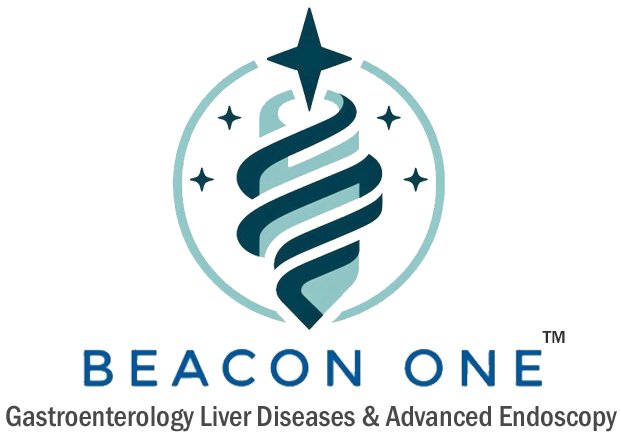Battling Pancreatic Cancer: Comprehensive Pancreas Cancer Treatment in Nagpur
Pancreatic cancer is often diagnosed at an advanced stage, making it a formidable disease to treat. However, with a dedicated multidisciplinary team and access to advanced medical technologies, effective Pancreas Cancer Treatment is possible, offering patients in Nagpur the best chance in their fight against this challenging malignancy.
Understanding Pancreatic Cancer
Pancreatic cancer arises from the tissues of the pancreas, a gland located behind the stomach that produces digestive enzymes and hormones like insulin. It is known for its aggressive nature and tendency to spread silently.
Several factors can increase the risk of developing pancreatic cancer:
- Smoking: A significant risk factor.
- Diabetes: Especially new-onset diabetes in older adults.
- Chronic Pancreatitis: Long-term inflammation of the pancreas.
- Family History and Genetics: Certain inherited genetic syndromes can increase risk.
- Obesity.
The Challenge of Early Detection
One of the main difficulties in treating pancreatic cancer is the lack of specific symptoms in its early stages. When symptoms do appear, they are often vague and can be attributed to other, less serious conditions. These may include:
- Jaundice (yellowing of the skin and eyes) – often occurs when the tumor blocks the bile duct. This can also involve issues typically managed by a Hepatologist or related to Liver Diseases.
- Abdominal or back pain.
- Unexplained weight loss.
- Loss of appetite.
- Changes in stool (pale, fatty stools).
- New-onset diabetes.
Due to these non-specific symptoms and the pancreas’s location deep within the body, pancreatic cancer is frequently diagnosed at a later stage when the cancer has grown or spread.
Crucial Steps in Diagnosis
Diagnosing pancreatic cancer requires a combination of advanced techniques:
- Imaging Tests: CT scans and MRI provide detailed images of the pancreas and surrounding organs to identify tumors and assess their extent.
- Endoscopic Ultrasound (EUS): Performed by a Gastroenterologist or Endoscopy Specialist, EUS uses an endoscope with an ultrasound probe to obtain high-resolution images of the pancreas and surrounding lymph nodes. This allows for the detection of small tumors and guiding a needle to obtain tissue samples (biopsy) for confirmation.
- ERCP (Endoscopic Retrograde Cholangiopancreatography): This Endoscopy procedure, also performed by an Endoscopy Specialist or Gastroenterologist, is particularly useful when jaundice is present. It involves visualizing the bile ducts and pancreatic duct and can be used to place a stent to relieve blockages causing jaundice.
- Blood Tests: While there is no definitive blood test for early pancreatic cancer, tests for tumor markers like CA 19-9 may be used alongside imaging, especially for monitoring.
A Multidisciplinary Approach to Pancreas Cancer Treatment
Effective Pancreas Cancer Treatment requires the expertise of a specialized multidisciplinary team. This team typically includes:
- Gastroenterologist / Endoscopy Specialist: Plays a key role in diagnosis (EUS, ERCP) and managing symptoms like jaundice by placing stents. Their expertise is crucial in evaluating the extent of the disease within the digestive system.
- Surgical Oncologist: Specializes in performing complex surgeries to remove pancreatic tumors when possible.
- Medical Oncologist: Plans and administers chemotherapy, targeted therapy, and immunotherapy.
- Radiation Oncologist: Uses radiation therapy in certain situations.
- Hepatologist: May be involved if the cancer affects the bile ducts, causing jaundice, or if there are related Liver Diseases.
This collaborative approach ensures that all aspects of the patient’s condition are considered, leading to a tailored treatment plan.
Pancreas Cancer Treatment Modalities
Pancreas Cancer Treatment options depend heavily on the stage of the cancer (whether it can be surgically removed) and the patient’s overall health. Treatment plans are highly individualized and may include:
- Surgery: For cancers confined to the pancreas, surgery (like the Whipple procedure or distal pancreatectomy) offers the best chance for long-term survival. However, only a minority of patients are eligible for surgery at diagnosis.
- Chemotherapy: Often used before or after surgery, or as the primary treatment for advanced cancer to control growth and manage symptoms.
- Radiation Therapy: Can be used alone or with chemotherapy to control locally advanced cancer or alleviate symptoms.
- Targeted Therapy and Immunotherapy: Newer treatments that may be options for some patients based on the genetic characteristics of their tumor.
- Symptom Management: Palliative care is a critical component, focusing on managing pain, nausea, and other symptoms to improve quality of life. This often involves procedures like Endoscopy for stenting if bile ducts are blocked.
Accessing Comprehensive Pancreas Cancer Treatment in Nagpur
Nagpur has healthcare facilities equipped to provide comprehensive Pancreas Cancer Treatment. Patients in Nagpur can access:
- Experienced Gastroenterologists and Endoscopy Specialists skilled in advanced diagnostic procedures like EUS and ERCP.
- Specialized surgical teams capable of performing complex pancreatic surgeries.
- Medical and Radiation Oncologists providing the latest systemic and radiation therapies.
- Multidisciplinary tumor boards where specialists collaborate to determine the best treatment plan for each patient.
- Supportive care services for pain management and symptom control, often utilizing Endoscopy for relief of jaundice or gastric outlet obstruction.
While pancreatic cancer is a challenging diagnosis, seeking timely evaluation and comprehensive Pancreas Cancer Treatment in Nagpur from a dedicated multidisciplinary team is essential for optimizing outcomes and providing the best possible care. If you are concerned about pancreatic cancer, consult a Gastroenterologist to discuss your symptoms and risk factors.

